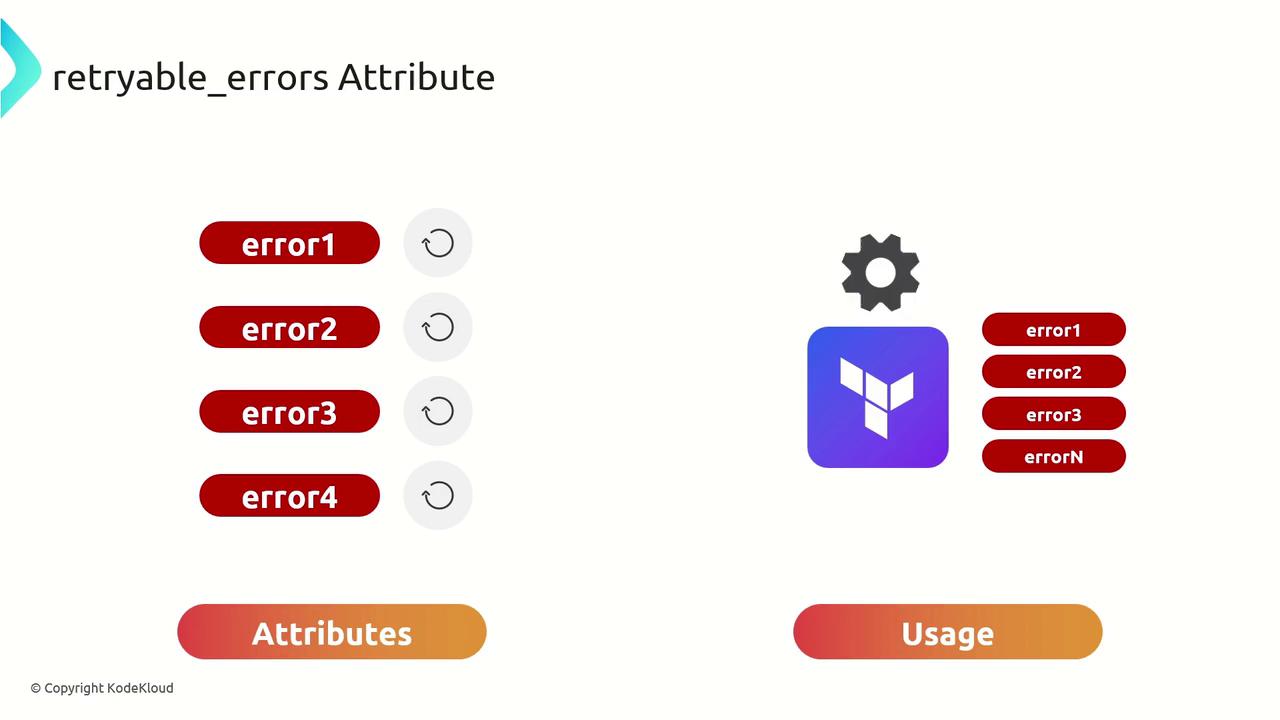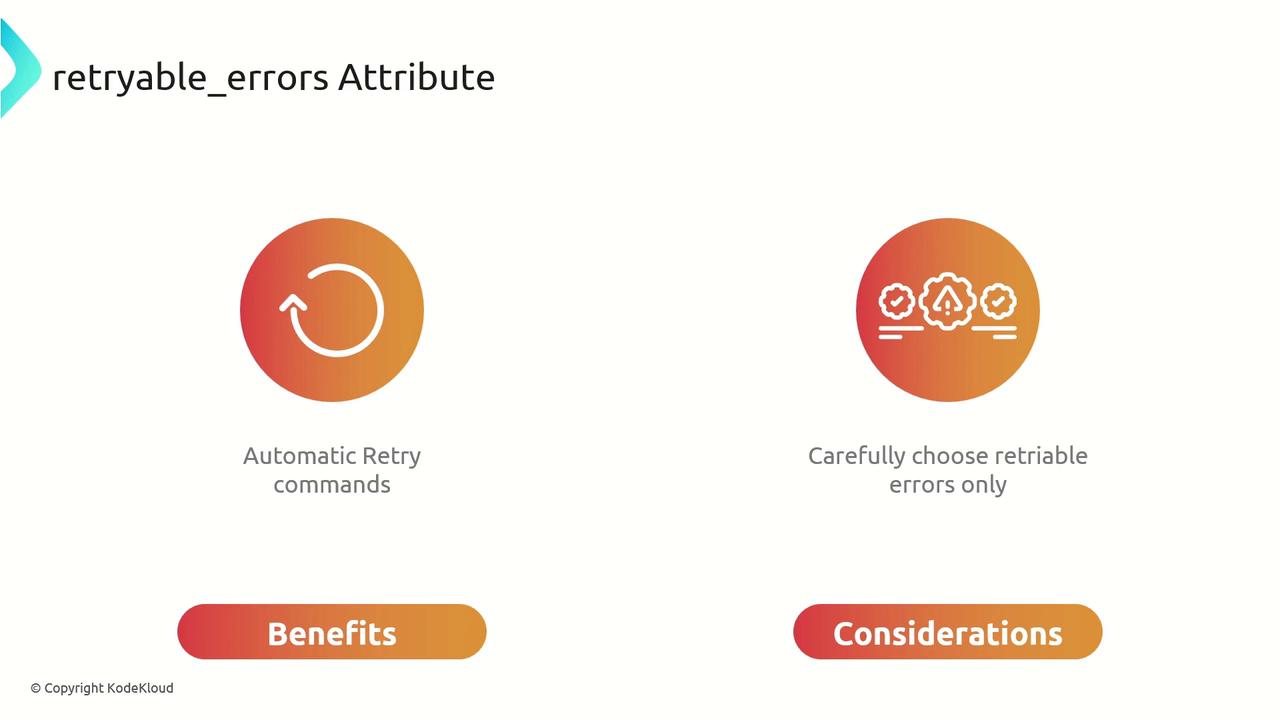Terragrunt for Beginners
Terragrunt Attributes
retryable errors Attribute
In this lesson, we’ll dive into the retryable_errors attribute in Terragrunt. By defining a list of error messages or regular expressions, you can instruct Terragrunt to automatically retry Terraform commands whenever a matching error occurs. This feature is particularly useful for environments prone to transient failures, such as network glitches or API throttling.

Why Automatic Retries Matter
Automatic retries eliminate the need for manual intervention when fleeting issues arise. Common scenarios include:
- Network timeouts between your CI runner and Terraform remote state
- TLS handshake failures with providers or backends
- API rate limits returning HTTP 429 errors
Terragrunt will keep retrying until either the command succeeds or it hits the maximum retry count.
Warning
Use retryable_errors sparingly. Only include patterns that truly represent transient failures to avoid masking legitimate configuration errors.

Common Error Categories
| Error Category | Example Pattern |
|---|---|
| Network Timeout | (?s).*tcp.*timeout.* |
| TLS Handshake Timeout | (?s).*TLS handshake timeout.* |
| API Rate Limit (429) | (?s).*429 Too Many Requests.* |
| Backend Initialization | (?s).*Failed to load state.* |
| Provider Installation | (?s).*Error installing provider.*connection.* |
Sample Configuration
Below is a terragrunt.hcl snippet demonstrating how to configure retryable_errors. Customize the regular expressions to match the specific error messages you encounter.
include {
path = find_in_parent_folders()
expose = true
}
inputs = {
name = "KodeKloud-VPC"
cidr = "10.100.0.0.0/16"
}
retryable_errors = [
"(?s).*Failed to load state.*tcp.*timeout.*",
"(?s).*Failed to load backend.*TLS handshake timeout.*",
"(?s).*Creating metric alarm failed.*request to update this alarm is in progress.*",
"(?s).*Error installing provider.*TLS handshake timeout.*",
"(?s).*Error configuring the backend.*TLS handshake timeout.*",
"(?s).*Error installing provider.*tcp.*timeout.*",
"(?s).*Error installing provider.*tcp.*connection reset by peer.*",
"NoSuchBucket: The specified bucket does not exist",
"(?s).*Error creating SSM parameter: TooManyUpdates.*",
"(?s).*app\\.terraform\\.io:.* 429 Too Many Requests.*",
"(?s).*ssh_exchange_identification:.*Connection closed by remote host.*",
"(?s).*Client\\.*Timeout exceeded while awaiting headers.*",
"(?s).*Could not download module.*The requested URL returned error: 429.*"
]
Note
Adjust each regex to match the exact error text your builds produce. Test patterns locally with tools like grep -P or regex101 before adding them to your configuration.
With retryable_errors in place, you can run Terragrunt commands with increased confidence that temporary issues won’t derail your CI/CD workflows. Happy provisioning!
Links and References
Watch Video
Watch video content